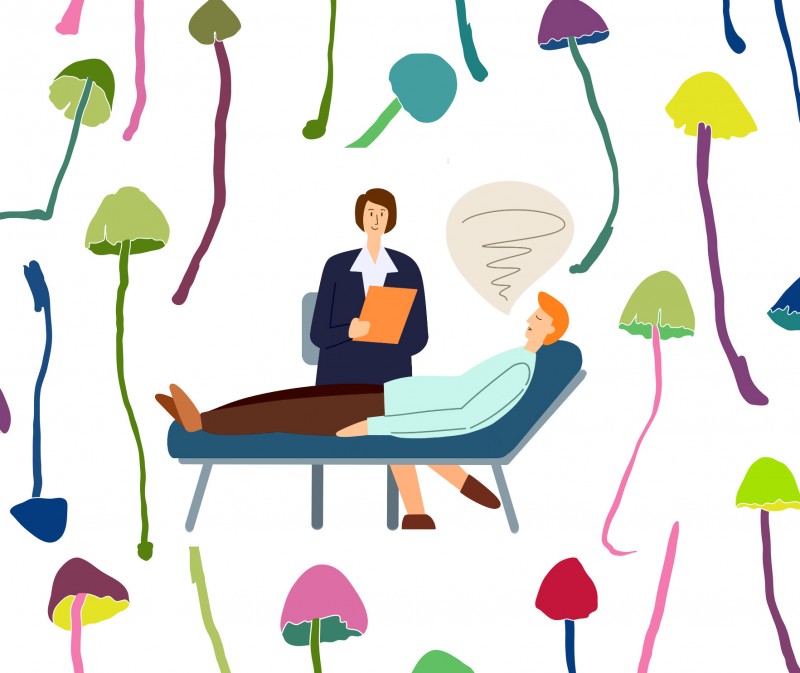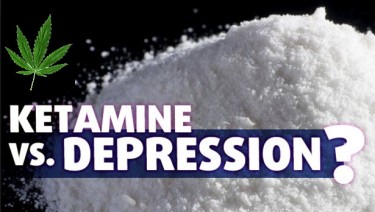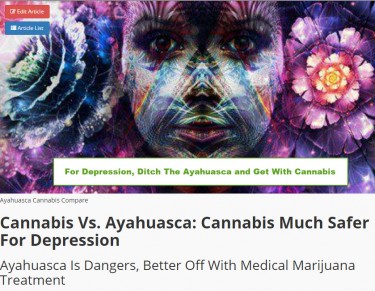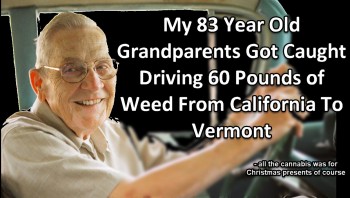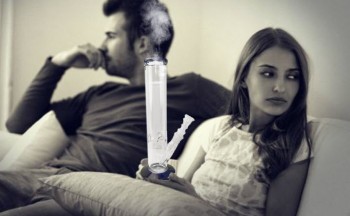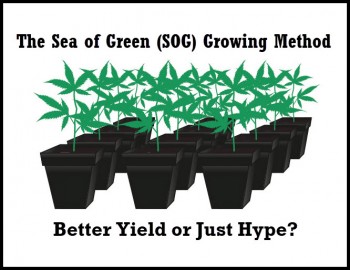Psilocybin-Assisted Therapy May Be Four Times More Effective In Treating Major Depression
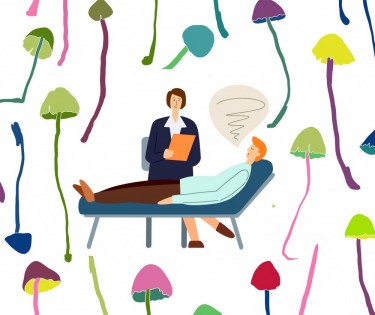
Psychedelics have been used over time in some therapies that have to do with mental health treatments. This has prompted the research into the effects of compounds like psilocybin and their possible advantages over traditional treatment methods. One major aspect of mental health that psilocybin has been identified to be effective against is depression. Antidepressants are commonly used to treat depression, however, their unwanted side effects and the prolonged onset of action make them less effective.
This article will explain how psilocybin-assisted therapy has been identified to be potentially four times more effective in treating depression.
Psilocybin and Depression
Psilocybin is the major psychoactive compound present in magic mushrooms. Much like cannabis, psilocybin is classified as a Schedule 1 controlled substance with no medical purpose. However, recent studies have identified important medical effects of psilocybin. One area where psilocybin has been purported to affect is in the treatment of depression. The beneficial compound has been approved on two occasions for trials regarding depression by the FDA. The first trial for the compound was for severe treatment-resistant depression. The second approval was directed towards major depressive disorder. Major depressive disorder is a very common condition with over 300 million suffering from the condition.
The Johns Hopkins study
Different institutions have conducted significant studies on the use of psilocybin for treating depression. The Centre for Psychedelic Research at Imperial College, London is one of such institutions that have conducted significant studies on the subject matter. Researchers at Johns Hopkins Medicine through a new study have also identified the potential effectiveness of psilocybin-assisted therapy to help deal with depression. The study involved 24 participants who were given psilocybin along with supportive psychotherapy. The selected participants all had at least two years of documented history with major depressive disorder. They were all required to lay off antidepressants before the commencement of the trials.
The patients were assessed using a GRID-Hamilton Depression Rating Scale. 24 or higher on the scale shows severe depression and 7 or less shows no depression. The participants were given two doses of psilocybin and they were spaced two weeks apart. The result of the study showed large antidepressant effects among participants who had a major depressive disorder. Half of the participants were completely free from depression throughout the month after the therapy. A continued inspection of the development of the condition of the patients over a year will give a clear picture of what to expect.
Research had earlier been conducted at Johns Hopkins in 2016 on the effectiveness of psilocybin with patients suffering from anxiety and depression based on terminal cancer diagnosis. The research was more streamlined towards patients with a terminal cancer diagnosis and so limited the scope of the research. However, this new research shows that psilocybin-assisted therapy can apply to a wider population for the treatment of depression. This is sure to come as good news to the whooping 300 million worldwide struggling with major depression.
Dr. Alan K. Davis described the magnitude of the effects seen with psilocybin-assisted therapy as being four times more effective than traditional antidepressants. Dr. Davis is the lead author of the study on psilocybin-assisted therapy by Johns Hopkins. He is also an adjunct assistant Professor of psychiatry and behavioral sciences at the Johns Hopkins University School of Medicine. While speaking on the study and the results, he stated that there are different reasons why the results show the therapy to be so effective. These reasons according to him explain why psilocybin-assisted therapy is more effective than antidepressants.
The initial reason put forward by Dr. Davis is the fact that this therapy combines psilocybin with psychotherapy. While using antidepressants, clinical trials do not involve combining the medication with therapy. This means that psilocybin with the combination affects broader areas which improves its efficacy. Antidepressants majorly act by affecting some specific neurotransmitters in the system to initiate reactions. Psilocybin-assisted therapy however generates some specific neurological effects to help reduce depression. Psilocybin also gives rise to some psychological effects that improve the therapeutic process. The combination of psilocybin with psychotherapy brings about some changes in brain function that regulates response to negative stimuli.
Another reason Dr. Davis put forward for this difference in effectiveness is the onset of action. Antidepressants and psilocybin therapy have a different time span for which they take effect. Antidepressants can take as long as weeks or months before they begin to take effect. Dr. Davis however, noted that psilocybin-assisted therapy works within a shorter period. Antidepressants are also known to have a strong series of unwanted side effects. Psilocybin therapy was also identified to have its side effects which majorly include mild headaches. These side effects were mostly after a psilocybin session and were due to acute effects of psilocybin. These side effects, however, did not affect the effectiveness of the therapy in dealing with depression and its evident therapeutic benefit.
Despite the obvious positives of this study, it has its limitations. The sample size used to conduct the study is small and there is no placebo control. This means the results of this study cannot be taken wholly. There is a need for larger trials in order to get more data in order to fully understand the true level of effectiveness of psilocybin-assisted therapy against major depression. This obvious limitation is why many in the world of mental health treatment are yet to agree that psilocybin-assisted therapy is more effective for depression.
Bottom line
The study carried out by Dr. Davis is certainly an eye-opener regarding the effect of psilocybin in dealing with depression. However, there is still a need for more clinical trials to be carried out on the subject before final conclusions can be made. The presence of clearer data from larger trials will give room for more concrete conclusions on this subject matter. However, as it stands, early indications point to the fact that psilocybin-assisted therapy is four times more effective in dealing with major depression.
CANNABIS, MUSHROOMS, DEPRESSION, READ MORE...
WHY ARE DOCTORS USING KETAMINE FOR DEPRESSION?
OR...
IS AYAHUASCA BETTER FOR DEPRESSION THAN CANNABIS?
